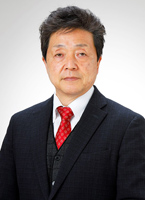Blind spot of “the right person in the right place” Hajime Ota (Professor, Doshisha University)

Many companies advocate “the right person for the right job” as their personnel management philosophy. At first glance, there seems to be no room for objection. However, it is a problem from which perspective it is “the right person in the right place”.
Consider the following case.
Let’s say that the company needs one person each for product development and DX (digital transformation), and two people, Mr. A and Mr. B, are candidates. Both of them hope to work in product development, and their abilities are hard to compare.
However, while Mr. A has the ability to specialize in DX, Mr. B lacks that ability. In such a case, if you think about the right person in the right place for the entire company, Mr. A, who can do both jobs, will be assigned to DX, and Mr. B, who can only do product development, will be assigned to product development.
As a result, Mr. A, who can do anything, loses money. This is the so-called “poor dexterity”.
Under this kind of personnel affairs, employees act as if they are incompetent in the jobs they do not want, as “a talented hawk hides his claws”.
Companies with a shortage of human resources who can work overseas are singled out for those who are fluent in English. However, while overseas assignments are burdensome, they are not necessarily the shortest route to career advancement. As a result, employees often whisper, “Pretend you can’t speak English.”
By the way, in an online survey of about 500 working people nationwide conducted in February last year, they were asked, “Do you sometimes hide your knowledge, skills, and special skills related to work, even if you are good at it?” As a result, 45% of respondents answered “yes” (My book, “Japan is more profitable than doing nothing”, PHP Shinsho, 2022).
In short, the ability that the company is trying to “exercise” or the career direction that the person is thinking of “advancing” does not match what the person wants. It is in the centralized personnel system of Japanese companies that prioritizes the logic of
Now that it is no longer uncommon for employees to change jobs or become independent, employees are becoming obsessed with their own futures and specialties, making it even more difficult for the company-led “right person for the right job” to function.
Therefore, from now on, a system that attempts to match the intentions of individuals with the profits of the company as a whole will be necessary.
A typical example of this is personnel transfers that incorporate the principle of competition.
Some U.S. companies have adopted a job posting system that recruits the most suitable personnel when a vacant position becomes available inside and outside the company. Some companies have introduced the system.
Although the number of employees who actually transferred using the in-house FA system was not that large, the effect of the message that it is possible to independently form a career is significant, and it is said that employees’ career awareness has become more positive at companies that have introduced it.
Many managers lament the passive and passive attitude of their young employees, but if they are to seriously bring out their positive attitudes, it will be essential to change the system of personnel affairs.
